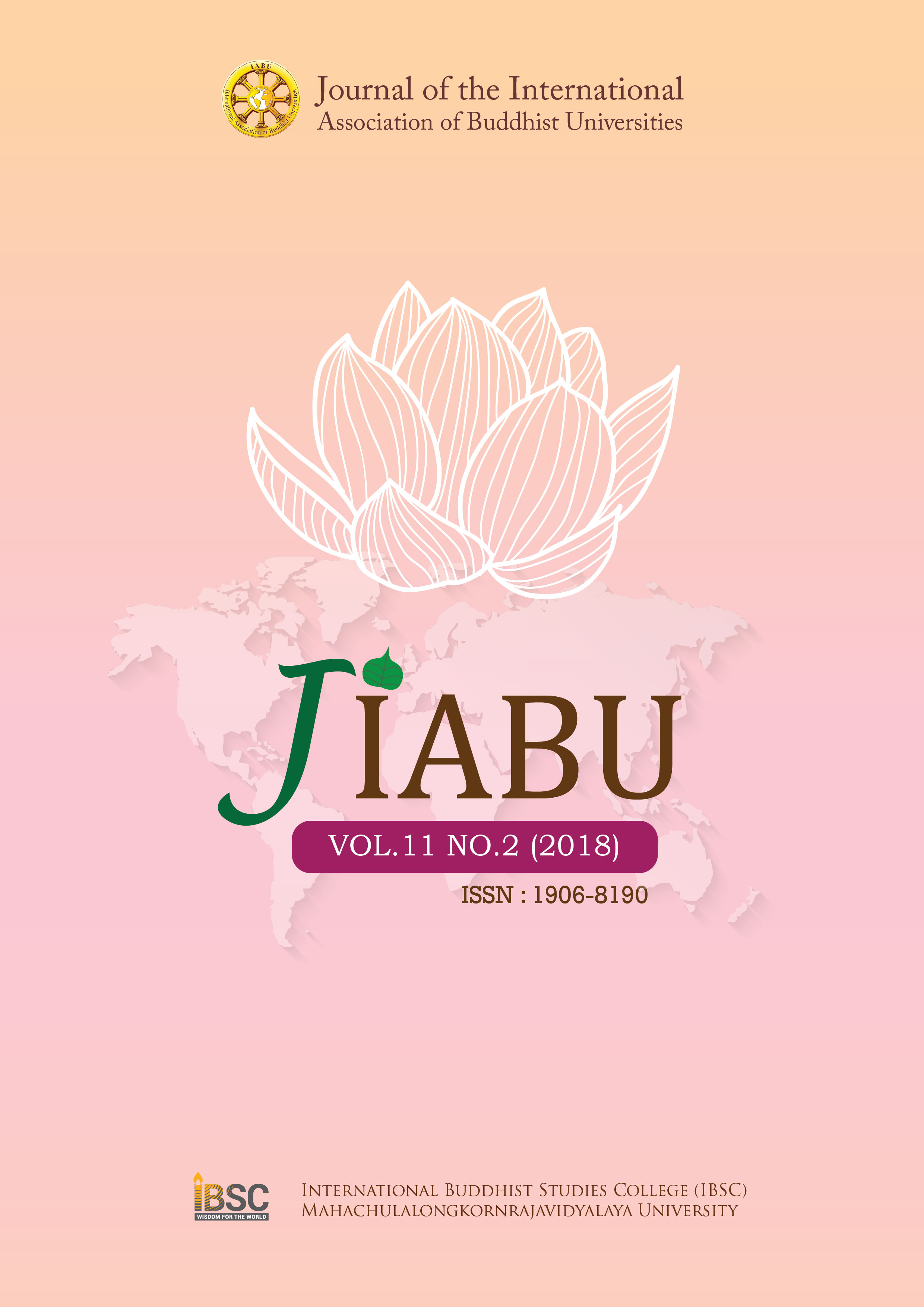Evaluating the “Unconscious in Dream” between Sigmund Freud and the Buddhist Tipitaka
Main Article Content
Abstract
Sigmund Freud, an Austrian psychologist, psychoanalyst, psychiatrist, and
neurologist, is best known as the founder of psychoanalysis, which has had a significant
impact on psychology, medicine, and sociology. Among the achievements of Freud, one of
the most important is the development of a three-component structural model of the psyche
(consisting of “id”, “ego” and “super-ego”). Although almost every fundamental postulate
of the Freudian theory was criticized by prominent scientists and writers, his contribution to the
creation of psychotherapy does not lose its value, and what he did is considered incomparable.
This paper presents an attempt to compare the concept of the unconscious in the dream in the works
of Sigmund Freud and in the Buddhist Tipitaka. Although it does not seem possible to find an
exact term from the Buddhist corpus to match Freud’s notion of the unconscious, there may
be some terms or a grouping of them, which come closer to it.
Article Details
Views and opinions expressed in the articles published by The Journal of the International Association of Buddhist Universities (JIABU), are of responsibility by such authors but not the editors and do not necessarily reflect those of the editors.
References
Kathavattu in Theravada Abhidhamma Yamaka in Theravada Abhidhamma
Freud, Sigmund (Author), James Strachey (editor), Anna Freud (editor), (1956-1974). The
Complete Psychological Works of Sigmund Freud (The Standard Edition), 24
Vols. London: Hogarth Press. (Compiled by Ivan Smith, 2011.
http://www.holybooks.com/sigmund-freud-the-complete-works/)
Freud, Sigmund (auth.), Strachey, James (Ed.). (2010). the Interpretation of Dreams. US:
Basic Books.
Freud, Sigmund (Auth.), M. D. Eder (Tran.) (1920). Dream Psychology. US: Feedbooks.
Freud, Sigmund (auth.), Jones, Katherine (trans.) (1939). Moses and Monotheism. London:
Hogarth Press.
I. B. Homer (trans.) (1949). The Book of the Discipline (Vinaya-Pitaka), Vol. 1 (Suttavibhanga).
London: PTS.
Mark Germine (1998). On the Quantum Psychodynamics of Dreams. Retrived from: http: //
www. goertzel. org / dynap sy c/1998/QuantumDream S. html
Martin Ringbauer, Matthew A. Broome, Casey R. Myers, Andrew G. White, Timothy
c. Ralph. (2014). Experimental Simulation of Closed Time like Curves. Nature
Communications, 5, 4145.
Mrs. c. A. F. Rhys Davids (1914). Buddhist Psychology: an Inquiry into the Analysis and
Theory of Mind in Pali Literature. London: G. Bell and Sons.
Narada Mahathera (1956). A Manual of Abhidhamma, Being Abhidhammattha-Sangaha of
Bhadanta Anuruddhacariya. Malaysia: Buddhist Missionary Society.
Nyanaponika Thera (1980). Buddhist Dictionary: Manual of Buddhist Terms & Doctrines.
Kandy: BPS.
Nyanatiloka Mahathera (2007). Guide Through the Abhidhamma Pitaka: A synopsis of the
Philosophical Collection of the Buddhist Pali Canon. Kandy: BPS.
O. H. de A.Wijesekera (1979). The Freudian Unconscious and Bhavanga. The Journal of the
International Association of Buddhist Studies, Vol. 1.
P. B. Tan. (2015). An Anatomy of Mind. Being Essence of the Dhammasangani in Abhidhamma.
Germany: Grin Publishing.
Padmasambhava (compiled), Gyurme Dorje (trans.), Graham Coleman & Thupten Jinpa (ed.)
(2005). The Tibetan Book of the Dead. US: Penguin Group.
Pe Maung Tin (trans.), Rhys Davids (eds). (1976). The Expositor (AtthasalinI) - Buddhaghosa’s
Commentary on the Dhammasangani. Oxford: PTS.
Prebish, Charles and Keown Damien (2006). Buddhism—the Ebook, Third Edition.US:
Journal of Buddhist Ethics Online Books.
Shwe zan Aung (trans.), Mrs. Rhys Davids (Eds). (1969). Points of Controversy or Subjects
of Discourse. Being a Translation of the Kathavatthu. Oxford: PTS.
Shwe zan Aung (trans.), Mrs. Rhys Davids (eds). (1910). Compendium of Philosophy: Being
a Translation of Abhidhammattha-Sangaha. Oxford: PTS.
T. W Rhys Davids and William Stede, eds. (1921-1925). The Pali-English Dictionary.
Oxford: PTS.
U Kyaw Khine (Trans.). (1999). The Dhammasanganl: Enumeration of the Ultimate Realities
Vol 1. Delhi: Sri Satguru Publications.


